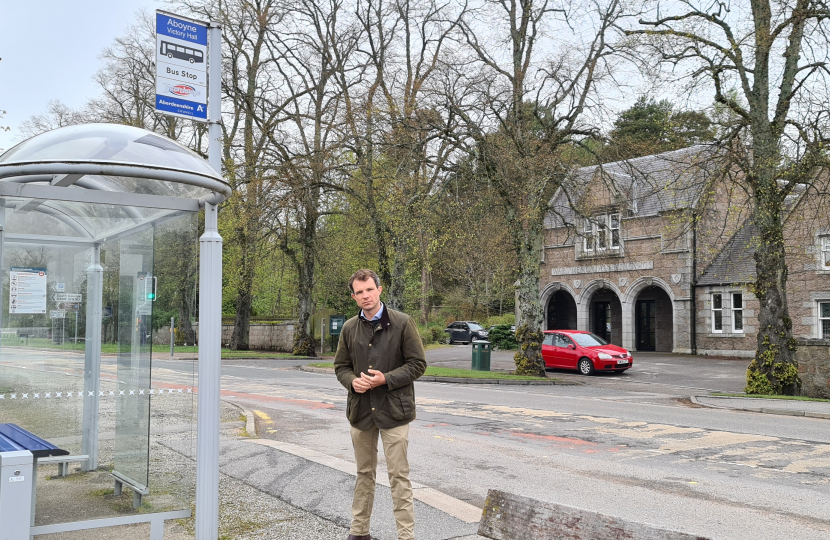
The Scottish Government has made bus operators aware that it does not intend to extend recovery funding to the country’s bus networks when current arrangements end on March 31st.
The end of the Network Support Grant funding will leave Scottish Bus Passengers as the only group in Britain left without government recovery support after both the UK and Welsh Governments agreed extensions for networks in England and Wales.
On the decision Andrew said: “Once again the people of Scotland are being disadvantaged compared to the rest of the UK because of the SNP/Green devolved administration, it’s unacceptable.”
“It’s also another bizarrely hypercritical decision from a Scottish Government made up of parties insistent on stopping people from using cars, just this week we’ve heard again of their intention to ditch dualling the A96. They won’t improve roads, they won’t support private transport, now they won’t support public transport either, do they simply want people to stay at home or are they expecting them to travel by horse and cart”
As recently as this month Andrew wrote to both Stagecoach and Aberdeenshire Council, urging them to protect existing bus services in rural areas, and highlighting the need for them to consider reintroducing rural services covering settlements along Deeside and Donside such as Aboyne, Torphins, Tarland, and Alford.
In the letter he raised the cost-of-living crisis as a key reason for a review, saying:
“As you may know, the cost-of-living crisis has made travelling further afield essential for many individuals in search of employment opportunities. However, the current state of bus services in rural areas makes this increasingly difficult, and I am concerned about the impact this will have on the local community, and on individuals who require work.”
However, in a letter to Andrew, Stagecoach advised that the end of Scottish Government funding could see cuts of up to 10% in bus services, and fare increases of up to 15%. Something the Andrew believes will be felt the most in rural areas, he said:
“Rural areas always feel the impact most, passenger numbers are lower and costs higher due to distances between settlements. The Scottish Government know this and should be doing more to protect rural services, not less. Yet more proof that the SNP simply do not care about rural communities.”
Worst Possible Timing
The West Aberdeenshire and Kincardine constituency is one of the largest and most rural in the country and Andrew believes that despite low passenger numbers, rural bus services are currently more important than ever:
“For those that do use public transport these services are essential and at a time when people are struggling financially they simply cannot afford for fares to increase, or to potentially lose their job because the service they use has been cut, it’s the worst possible timing for what was already a ridiculous decision”
Andrew concluded his letter last month by saying “I understand that maintaining and reintroducing these services may present some challenges, council budgets are tight and huge challenges in financing subsidies for services exist. Likewise, I appreciate that without a subsidised service Stagecoach find it difficult to maintain many of the rural services due to low usage. However, I am confident that with cooperation between Stagecoach and Aberdeenshire Council, we can find a solution that works for everyone.” He now says that his confidence in the two parties finding a solution has waived:
“This announcement comes just 9 days before Aberdeenshire Council are due to set their budget, we know they have a huge black hole to fill due to a lack of funding by the SNP/Green Scottish Government, providing more subsidies to bus services was always a big ask, in fact it wouldn’t surprise me if we saw more reductions. Now we hear that the Scottish Government are cutting funding to operators as well. My confidence in the council and stagecoach finding a solution has very much waived, what chance do they have when the Scottish Government seem intent on stripping them both of what little funding they did provide.”




